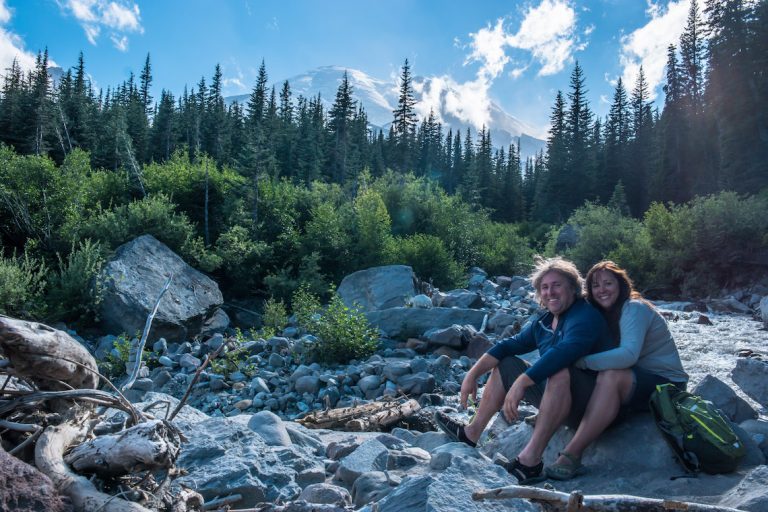Is it realistic to have dreams of quitting your job and riding around the world? We spoke to Michnus Olivier of PikiPiki Overland to find out
For so many of us, the dream is to pack our panniers and disappear off into the world, only to return home when we feel like it. But jobs, family and life, in general, have a habit of getting in the way and jolting us back to reality. Some people, however, have managed to engineer their lives so that they can do just that; ride off into the sunset and explore the world by motorcycle to their heart’s content.
Michnus and Elsebie Olivier are two of those people. Hailing from East London in South Africa, they now spend most of their time adventure riding in far-flung destinations around the globe while documenting their journey on their blog, PikiPiki Overland (www.pikipiki.co.za).
We caught up with the guys to find out how they’ve managed to organise their lives to be able to do this, the story behind the success of their popular blog, and what advice they’d give to would-be adventure riders who are looking to live the same life of exploring that they lead.
ABR: Hey guys! First off, tell us a little bit about yourselves.
Michnus: We are Michnus and Elsebie. Our addictions are motorcycle overland travel, amateurish photography, drinking beer, talking rubbish and striking up friendships with quirky people from all over the world. We love adventure riding and exploring and experiencing cultures that will challenge our own beliefs and views.
Our home is in East London, South Africa, but our hearts are in discovering the joys and mysteries of the world. We sold up a company we started in South Africa for outdoor motorcycle travel and made sure we had enough money to drift around the globe. With a combined age of 93, we decided to get going sooner rather than later to make it to the other side without too many aches and pains. On our blog, PikiPiki (www.pikipiki.co.za), we document what we see and learn for those who want to follow our ramblings.
Our odyssey is not to set records or get the passport stamps. Our travels have no expiry, it’s our way of life.
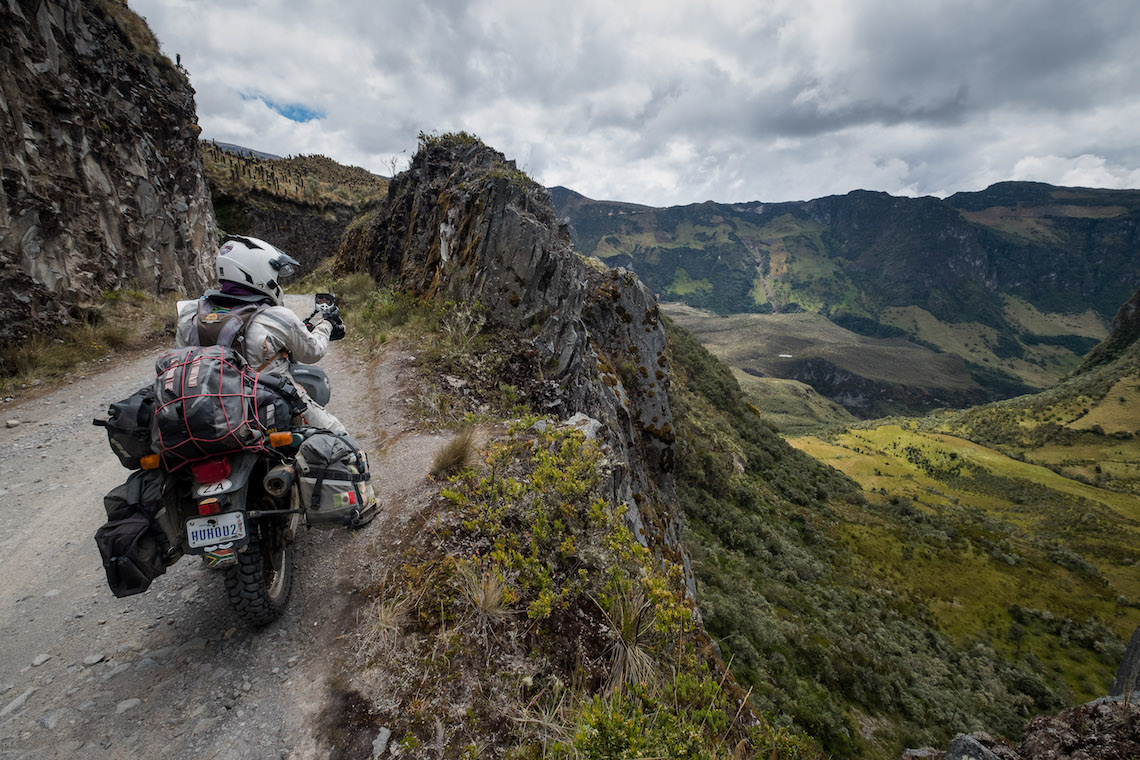
ABR: Tell us a little more about PikiPiki, what does it mean, and how did Elsebie and yourself get the idea to create your own personal brand?
M: PikiPiki is the Swahili word, or more the description, for a small motorcycle. Imagine the sound a small bike makes, ‘piki-piki-piki-piki’. When we originally decided to venture outside of our borders we tackled Africa first, and thought it quite fitting to use a word for our blog instead of our names. The purpose of our blog was to document our travels not only for ourselves, but to inspire friends too.
As we started looking for products and information, we realised that there were not a lot of sites catering for our type of travelling with full information, and as such, we decided to document it as we went. Also, it was fun having a blog page we could use in conjunction with our own brand we started in South Africa manufacturing outdoor gear for overlanders.
ABR: What allows you to travel so much by motorcycle? How do you find the time and money?
M: We always knew we did not want to do the accepted ‘normal lifestyle’, so we worked as hard as we could, spent as little as possible and saved up as much as we could. Our main aim was to invest money and create ‘passive income’, and we now have the freedom to travel while our money works for us. Our passive income is from properties we bought years ago. So, from 2010 we hit the road, first in small doses, but now it is our new lifestyle.
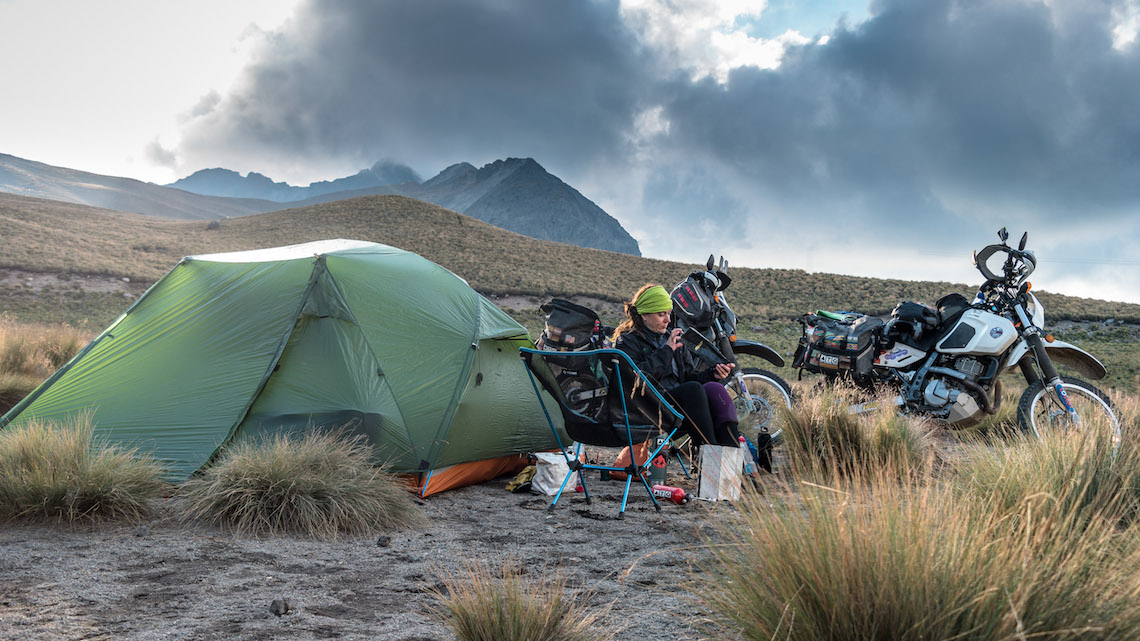
ABR: Do you have any children? If so, how do they impact your decisions to travel so often?
M: No, we do not have children, we decided early on that it would influence our goals too much. We have met very few people travelling the way we do that have children. But this should not influence your dream. Travel with another vehicle with your bike on the back if needed.
ABR: What would you say are the key ingredients to creating a successful motorcycle travel blog?
M: There are a few basic principals to follow. Create excellent, original, authentic content. Photos and videos are very important, and learning how to take quality photos will help tremendously. Being consistent is about the most important part. Post regularly and learn how to use SEO (search engine optimisation) and other tools to effectively get your blog post out to other social media channels. Most importantly, be yourself and be honest.
Do not ‘puffer’ (stretch the truth) your experiences, just be open-minded. Keep in mind, growing a feed is not something that happens overnight, it takes time.
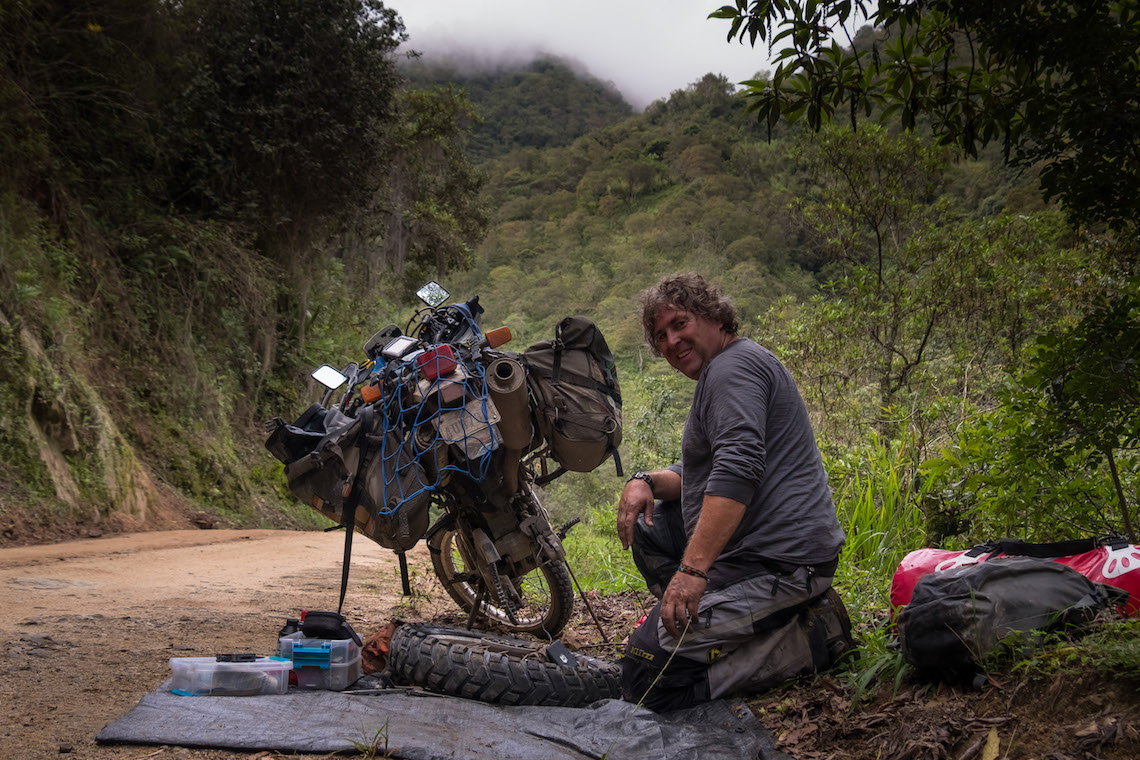
ABR: It seems that a lot of people see sponsorship deals as an easy way of funding long, far away adventures, especially if they have plans of running a blog. Is sponsorship worth pursuing for those with similar aspirations as yours?
M: Yes and no, but it depends on quite a few things. The first question to ask is why would you want sponsorship? To get free stuff just because you want to save a few dollars on gear or can’t afford to travel? Or is it to help and add value to others and a brand? If it is to get free stuff you can buy second-hand gear on eBay for less and have zero obligation towards a brand. Most brands offer a discount on products but not free gear.
As for making money from sponsorship, no, it is not worth pursuing. Most companies do not give cash and/or products for sponsorship easily these days. Even
the well-known travellers do not earn enough funds to sustain a trip from the sponsorship money they receive. And then they sometimes work like dogs to keep the brands happy.
Brands gain much more from you than you do from them. When you travel, it is your time, money and gear. As well as your opportunity cost of not working or earning. They pay nothing towards that, they get good content and only offer up a discount or a product. You will work for that, and essentially you pay for what you think you get for free.
Brands have also been burned in the past as the majority of free sponsorships never amount to anything. When people get free stuff they haven’t paid for, it has no value to them.
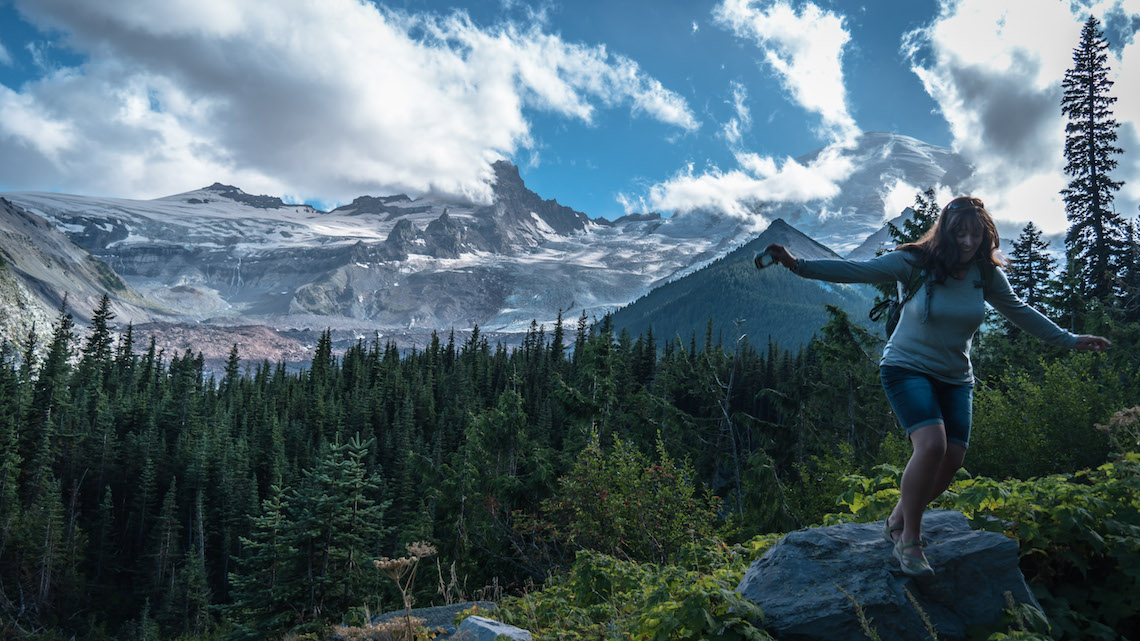
ABR: What is the main reason people do not deliver?
M: There are so many reasons such as a trip ending prematurely or travellers not realising the extent of the work they have to do for the brand. Most travellers are not marketers and do not know how to take quality product scene photos or use social media properly to get the reach the brand expects from them.
Many travellers take on any sponsorships and end up hating the social media obligations and consequently end up hating their trip. Also, take into account how much your total trip costs you. The bulk of the expense is your flights, shipping costs, living costs, fuel and insurances, to name a few. The value you get out of most sponsorships cannot even begin to remunerate you. After all, you do not decide to go on a world trip based on sponsorship, you go because you want to travel and see the world.
ABR: What do brands look for when they’re deciding whether or not to be affiliated with you?
M: It depends on what they want to accomplish and what they deem ‘payback’ enough. Brands are generally moving away from the big celebrity names to the smaller micro-influencers on social media. They look for people who are actually part of the community, who share regularly, are consistent and post valuable, original content. Informative content with quality photos and videos are very important to them for their own exposure and SEO reach.
Brands do not really want first-timers, they prefer people with an established blog and an already relatively good social media reach. Instagram, Facebook, Pinterest, Flipboard, G+, etc. all take time to grow, and having a moderately good following is essential. High engagement rates with your social media platforms are a big plus.
How that person can be a valuable ambassador to their brand is a big consideration for companies. Their reputation is key, and for example, their values as a brand might not want to see posts from religious, political or other contentious topics and they might not want to be associated with stoned-up party posts with naked girls.
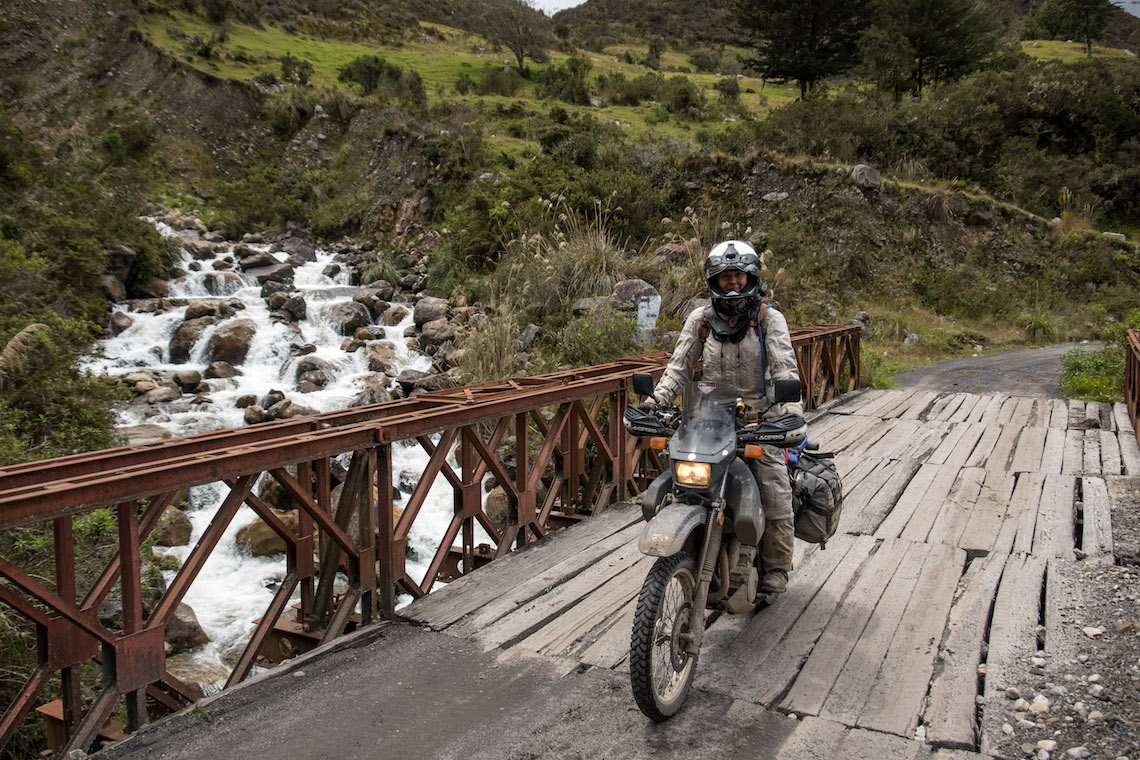
ABR: Any suggestion for people if they want to pursue convincing a brand to sponsor them?
M: Start small, get one brand, dealership or distributor onboard and work with them. Put together a proper CV to present to a sponsor showing what, how, how long, what you will bring to the table and how you can benefit them.
There are great benefits and synergies for both small brands, companies and riders. Both parties can benefit from a partnership or ambassador agreement, especially if you do some homework and clearly define what each wants to achieve from the partnership.
ABR: How do you ensure that you keep them happy?
M: Our first approach was to make it a win-win for us and the brands. We never actually used sponsorships, we started using the term ‘partnership’. No free gear, we pay for the gear we use, not full price as they offer us a discount. Negotiate reachable goals. For example, do not promise 1,000 photos a month or a certain amount of social media posts. Also, we get involved with feedback with the gear we use. Send regular updates on how it performs and suggestions on how they can improve the product.
It is important to build a friendship and relationship with the brand, as it will allow for a long-term working relationship and future partnership deals. Most of the brand people we support are friends to us now.
We always ensure the sponsors understand that we will always be honest and they can look at our existing blog to see if they are happy with the exposure we offer in our reviews of their products. If you receive free stuff it’s hard to criticise or be honest about its failures. That is of no value to the public or customers and you add no value to the community. When we have issues with products we will first take it up with the brand before we do a review.
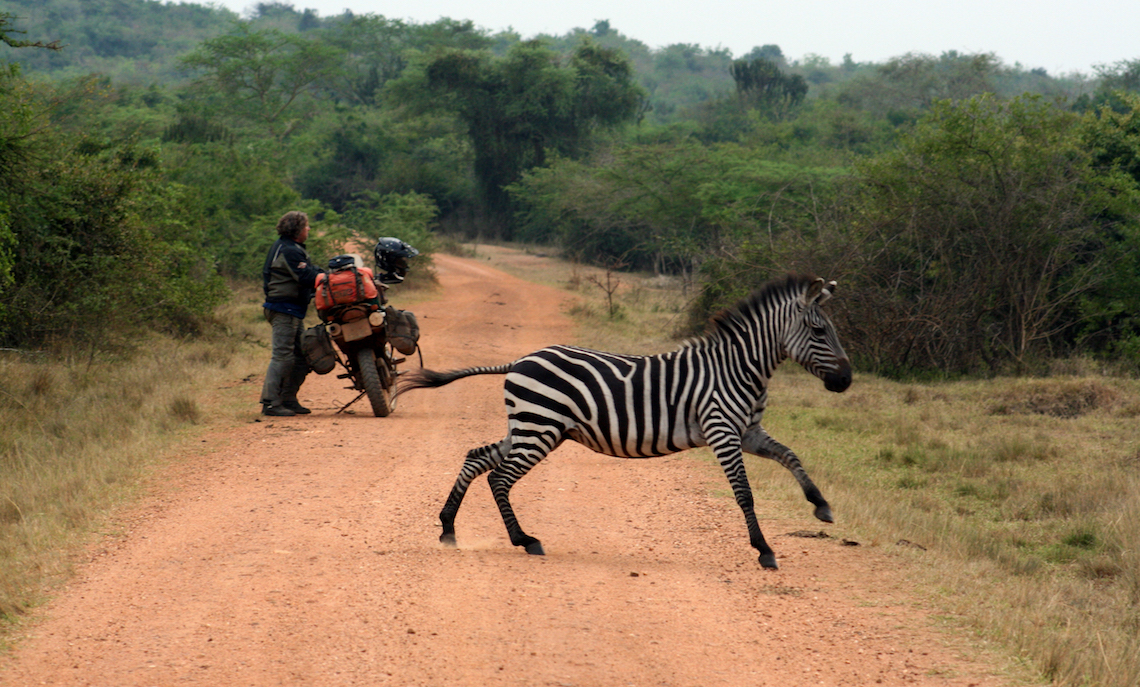
ABR: Does travelling with the pressure of sponsor expectations lessen the enjoyment of the ride?
M: As we have been on both sides of the fence we know what pitfalls to avoid. Due to our old brand, ATGear, we frequently received a request for sponsorships and have been in partnership with brands to know how to not get in over our heads. Planning ahead to meet deadlines helps tremendously, but we also have the time to do it as we do not have a fixed-term trip.
We have met numerous travellers on our journeys that regret their agreements with their sponsors, as they just did not realise the magnitude and responsibilities for taking on sponsorships or they spam up social media with their posts so much that they lose more followers than they gain.
People travel because they want to take off from work and have a sabbatical, but then they take on sponsorship. Many trip planners use a tight time schedule and experiencing the world takes up more
time than anticipated, leaving little time for capturing, editing, and uploading data to feed into social media. While friends sit and drink beer in a small town Mexican bar enjoying the evening, you will edit photos in your boring hostel room writing blog entries and reviews. Do you want all your memories to look like an advertisement board forever?
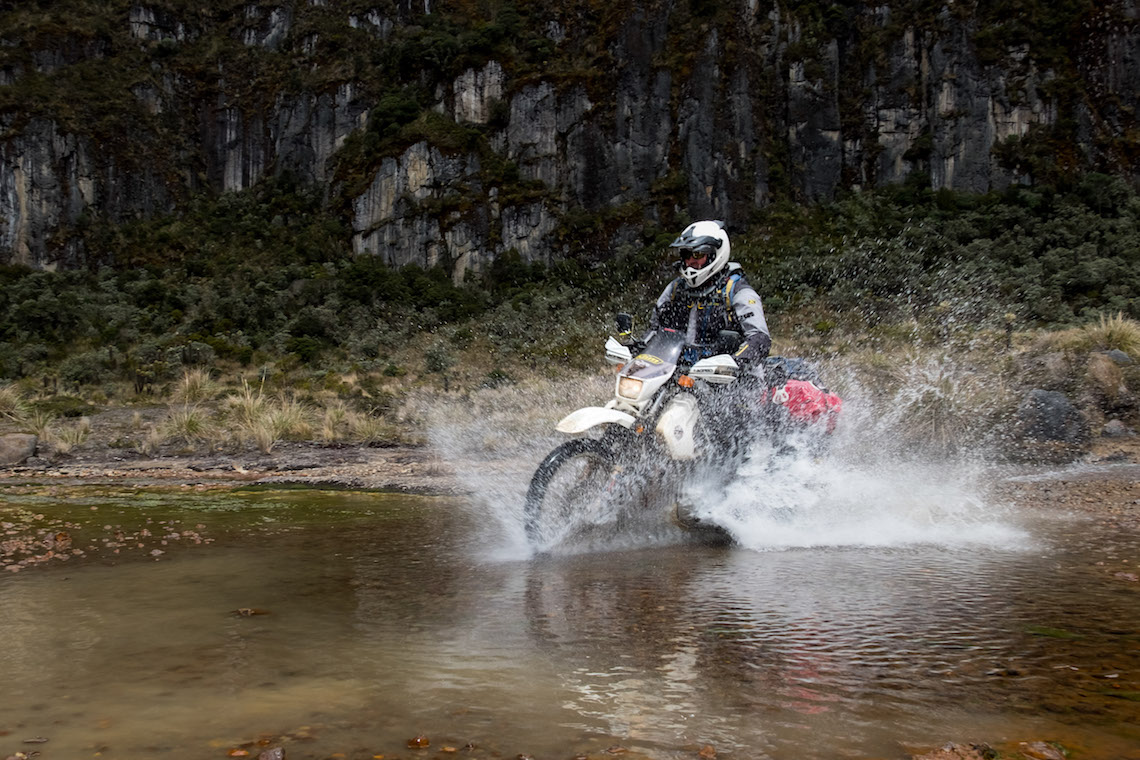
ABR: Is it better to try and get a motorcycle supplied by a sponsor, or would you rather own your bike?
M: It will depend on the agreement, the company and more importantly, the type of trip you want to undertake. If you are on a heavy BMW 1200 your trip and routes will for sure differ from someone on a 650cc. Although the thought of getting the most expensive object you need for free is alluring, you have to make sure that it covers expenses and maintenance.
Consider the type of shipping you would need, and as an example, a carnet de passage is valued against the value of the bike, the licensing costs and again, the type of trip. Shipping one 1200cc bike costs the same as two smaller motorcycles and the maintenance on a 1200 is much costlier than that of a smaller cc motorcycle. Most brands do not pay for maintenance and trip costs, those expenses are for your account.
It can also be a much more precarious approach. For example, what will happen if you have an accident within a month of starting the trip, or the bike get stolen, or it gets impounded in Egypt indefinitely for some reason? Who is paying for that? The agreement will have to be much more comprehensive to cover all the bases. To start with, if you are not going Charley and Ewan’s route, it is best to use your own paid-for motorcycle.
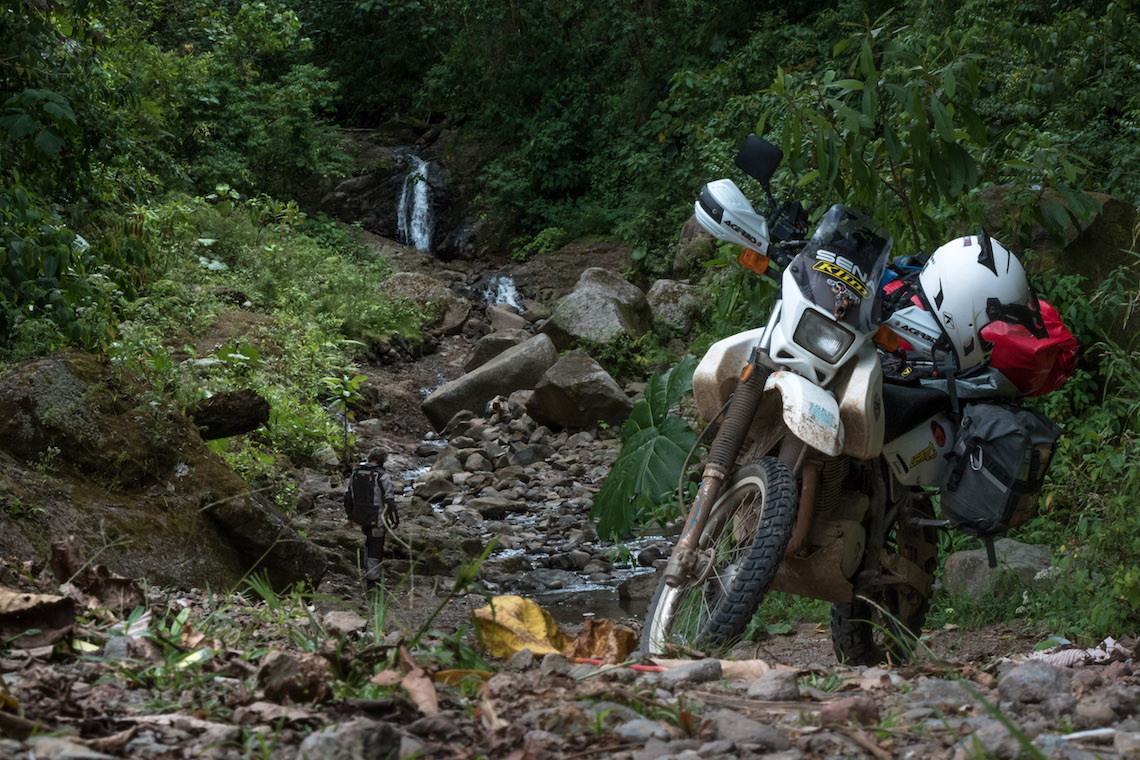
ABR: What advice would you give to anyone who wants to start travelling more and working a 9-5 job less?
M: It is a long-term goal. Spend less, you do not need the new iPad, you do not need to have the best, biggest bike. Have a single-minded, stubborn goal in working towards creating extra income and passive income. Save and invest and work smart. Every amount you invest in ‘passive’ income will make your trip start sooner and last longer. Our goal did not start seven years ago, we started working on this 20 years ago.
Find out more about Michnus and Elsebie’s epic adventures and vagabond lifestyle by visiting their fantastic blog, PikiPiki Overland, at www.pikipiki.co.za or facebook.com/pikipiki.co.za

